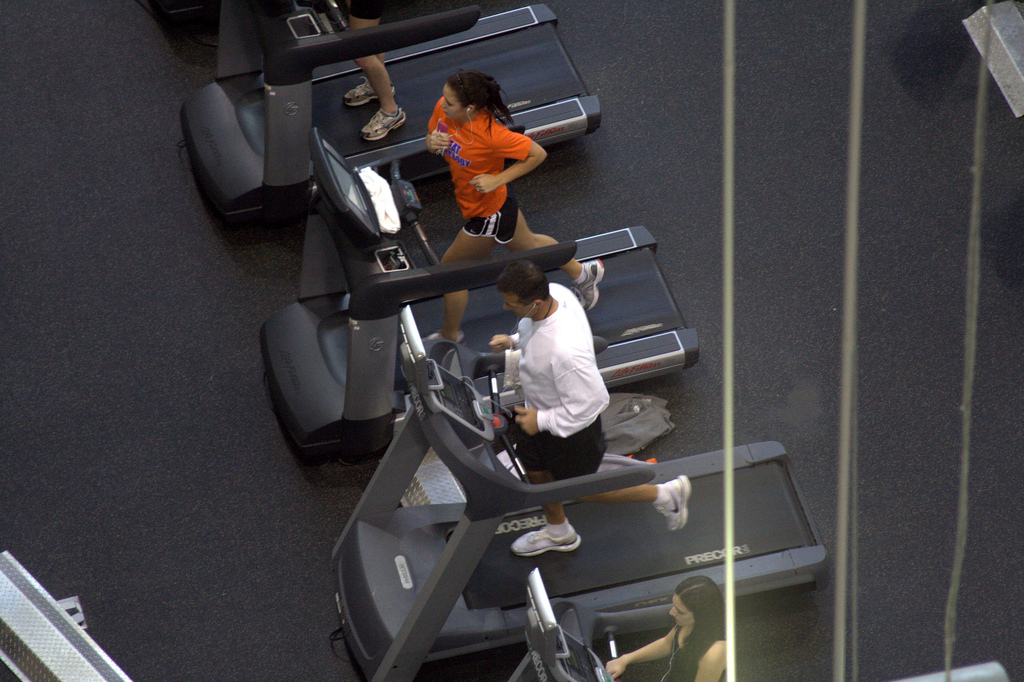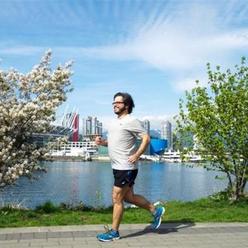The weather in this time of year can scare off even the most determined runners. Whether you are facing the polar vortex that has taken its toll on many part of North America, or are dealing with the heat wave sweeping across Australia it is often hard to motivate yourself to get outdoors for a run.
As a result, many runners turn to the treadmill as an alternative to outdoor running. Treadmills allow runners to train during bouts of bad weather. Unfortunately, they can also be pretty boring. Some people also worry that they are not getting as good of a workout as running outdoors.
Here are some insights and tips that I have learned about treadmill running. Hopefully they will give you a new perspective of the treadmill.
Dis-incline
Running lore suggests that you should set the incline on your treadmill to 1% to make up for the fact that it is a bit easier to run on a treadmill then outside as you do not need to dispel the air in front of you. However, there is no scientific proof to support this, at least for the average runner.
If you feel that it is easier to run on the treadmill at a given pace, you can alway increase the speed slightly. This has the added benefit of boosting your confidence. 🙂
Give your body a (slight) break
Running on a treadmill offers a more forgiving surface that concrete or asphalt. This reduces the forces absorbed by your body, especially your joint other injury sensitive areas of your body when you run. This is why—even in more temperate seasons—I tray and run on a treadmill once a week or so. I find it gives my body a slight break from the pavement and allows me to recover a bit faster.
Hands Off!
Don’t hold on to the handrail or console of a treadmill. Holding on impacts your biomechanics and transfers stresses to other parts of your body. It will also decrease the effectiveness of your workout.
Run Light
As mentioned earlier, a treadmill is a softer running surface than pavement. As a result, it is a great opportunity to try those lighter, more ‘minimalist’ shoes your been wanting to try. An added benefit is that it that you do not have to commit to wearing them for an entire run at first. You can keep your other shoes beside you can change then after a few minutes or miles. And if the new shoes don’t work for you, most running stores will take them back as you haven’t worn them outside.
Run Quiet
Running on a treadmill is a great opportunity to pay attention to your running style. Pay attention to the sound your feet make when landing on the treadmill. Then try to run more quietly by concentrating on the sound. Less sound indicates less impact, and lower impact forces on your body. By focusing on running lighter on the treadmill, you will help improving your running form and lessen your chance of injury when you hit the pavement again.
Count your Cadence
Running on a treadmill offers a great opportunity to figure out your stride cadence: the number of strides you take each minute. All you need to do to find your stride cadence is count how many times the same foot touches the ground in one minute. Aim for a cadence of 90 or higher; lower cadences indicate that you are over-striding and increasing the amount of forces your body is absorbing with each step.
Precision Control
Most treadmills have a series of pre-programmed routines. However, I recommend ignoring these programs and setting your treadmill to ‘manual.’ This gives you more control over your run and how much you push yourself. Basically, you want to listen to your body (as you would when running or walking outside), not the machine.
In addition, manual control is very useful for workouts that need precise manipulation of speed, incline or time—such as hill or speed intervals.
* * *
By following these treadmill running tips you can make the most of your training when the weather turns extreme. Who know, you may find you like it more than you thought and find yourself running on a treadmill throughout the year! 😉
Your Turn
Do you run on a treadmill? What tips would you add?










